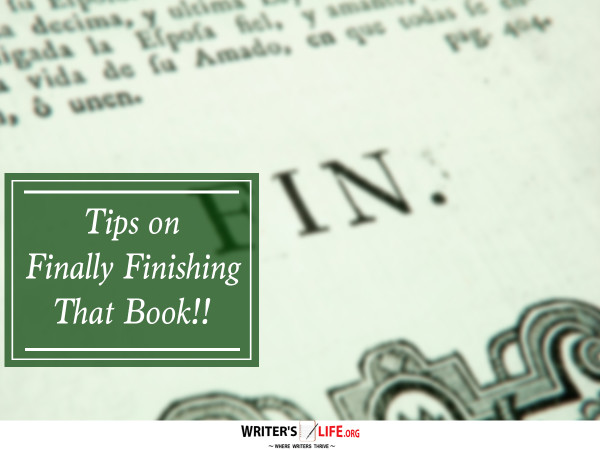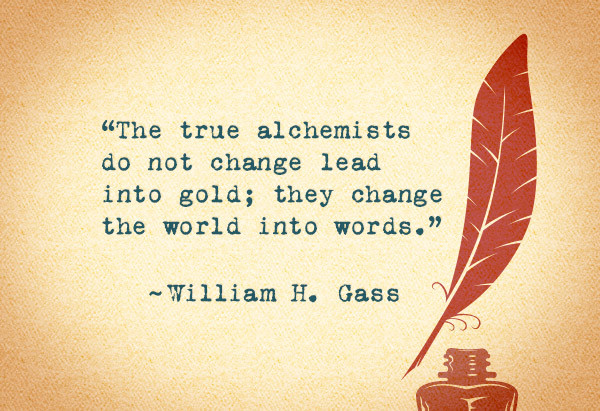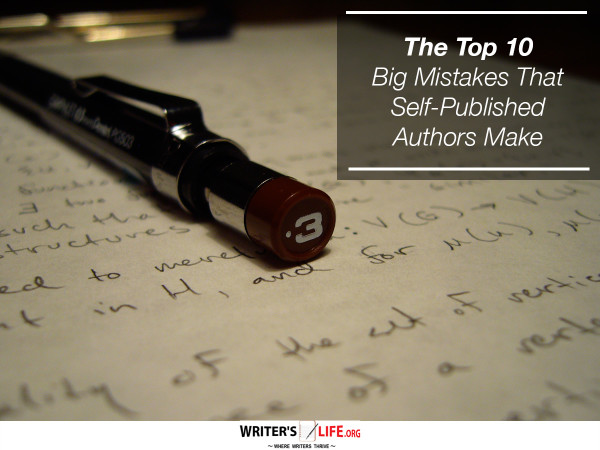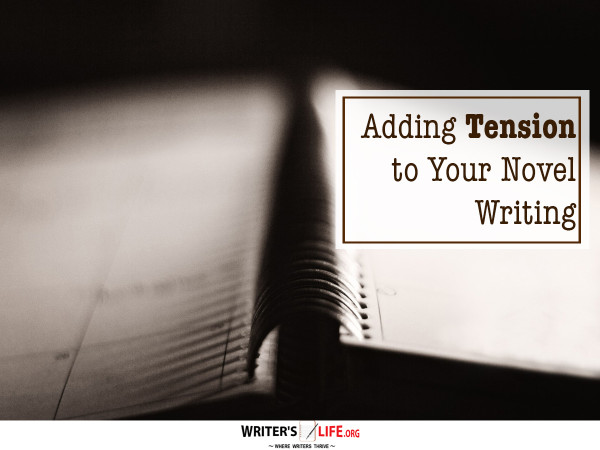- How To Tackle Jealousy In Creative Writing
- Common Submission Mistakes
- How To Stop Your Blog Becoming Boring
- The One Thing Every Successful Writer Has In Common
- How To Make Yourself Aware Of Publishing Scams
- Why Almost ALL Writers Make These Grammar Mistakes At Some Point
- 5 Tips For Authors On How To Deal With Rejection
- Top Mistakes to Avoid When Writing a Novel
- How to Avoid Common New Writer Mistakes
- 10 Mistakes New Fiction Writers Make
Tips on Finally Finishing That Book!!

Share, Pin or Retweet If You Love Writing!
Nearly every day, I hear from writers who want to finish their book but don’t know how. They tell me they have great ideas, have already finished a few chapters, but they just can’t summon the motivation to complete what they started.
Why We Struggle to Finish Our Books
I can relate. At one point in my life, I struggled to finish every creative project I started. As a kid, my house was filled with half-filled journals, half-built carpentry projects, and, of course, half-written books.
It actually wasn’t until I started blogging that I learned the secret to finishing:
Small deadlines.
We’ve published a post on The Write Practice nearly every day since July 2011 (nearly four years as of this writing!). Since then, I’ve written four books, published short stories, and taught nearly a dozen writing courses.
While I still have a lot of unfinished projects, I now feel like I have more control. I can now finish things when I really want to, as long as I use my secret trick.
Why do small deadlines work, and can they work for you? Let’s find out.
How to Finish Writing a Book
To finish a book, you need stress.
Before you scoff, let me make my case.
While stress isn’t a particularly pleasant feeling, it’s absolutely necessary if you want to be productive. Daniela Kaufer, a biology researcher at UC Berkeley, says this about the positive side of stress:
You always think about stress as a really bad thing, but it’s not. Some amounts of stress are good to push you just to the level of optimal alertness, behavioral and cognitive performance.
Writers and other creatives often try to avoid stress. They say they need to get into the “zone,” “commune with the muse,” or “wait until inspiration strikes,” as if writing a great book should be easy.
But the truth is, stress helps you be creative. More importantly, it helps you finish things.
Of course, too much stress can ruin your health and eventually de-motivate you. But if you set the right deadlines (and keep them) you can create just enough stress to motivate you to finish your work.
To Finish a Book, Keep Your Deadlines Small
When I first started blogging seven years ago, I decided I would post every day, which meant every day I had a deadline, every day I had to create something or I would feel like I had let my readers down. The best part about these deadlines is that they were small, they only took about two hours to complete.
The mistake most writers make is they make their deadlines too big. They commit to writing a book by the end of the year when they should really commit to writing a page every day for the next year. Huge deadlines make you feel proud of yourself at first, but they can feel too far out of reach and thus are too easy to abandon.
Instead, you need bite-size deadlines, daily deadlines, deadlines you can finish in an hour or spend five hours on if the mood strikes. Small deadlines are harder to abandon, easier to keep, and don’t crush your spirit by the enormity of the task.
If the deadlines were larger, you might procrastinate and end up not doing it. But anyone can write for fifteen minutes a day, anyone can write one poem per week, no matter how busy they are.
You can FIND the time. You can find advice inspiration, motivation and the organization skills that you need to stay on track as a happy, fulfilled and productive writer in The Get It Done, Writer's Toolkit. This is an ebook / audio CD combo set that teaches writers how to overcome writer's block and procrastination and brainstorm the best possible strategies and outcomes for writing projects.
Two Final Tricks to Finish Your Writing Project
How do you finish a book? Here are two final tricks:
1. Big Deadline + Small Deadlines For The Win
Those larger deadlines can still be helpful for providing an overall vision and directive. You might set a deadline to finish writing your book by January, but then a smaller deadline to write two pages per day.
2. Use Your Emotions to Solidify Your Deadline
Put some emotional mojo behind your deadlines by asking these two question:
“How good will I feel after I finish this deadline?”
Meditate on how you’ll feel when you complete your deadline. Imagine how proud of yourself you’ll be, how amazing it will be to hold that completed manuscript in your hands. Think about how finishing this project will improve so many other aspects of your life.
Think about how great you will feel if you self-publish your book and it is a hit! Our online Webinar called “How to Get Published, Sell Books & Attract Tens of Thousands of Readers by Selling Your Content on Amazon’s Kindle” CLICK HERE! It takes you through then entire process from devising the content, to scheduling writing to formatting, proof-reading and marketing.
You CAN Finish Your Writing Projects
It may not always feel like it, but you can and will finish your writing projects.
You are not powerless to your emotions. You will not be beaten by procrastination. You are committed and you will finish.
Now, go make it happen.
Joe Bunting is the author of this blog originally titled 72% of Writers Struggle With This found at http://thewritepractice.com/finish-projects/





























